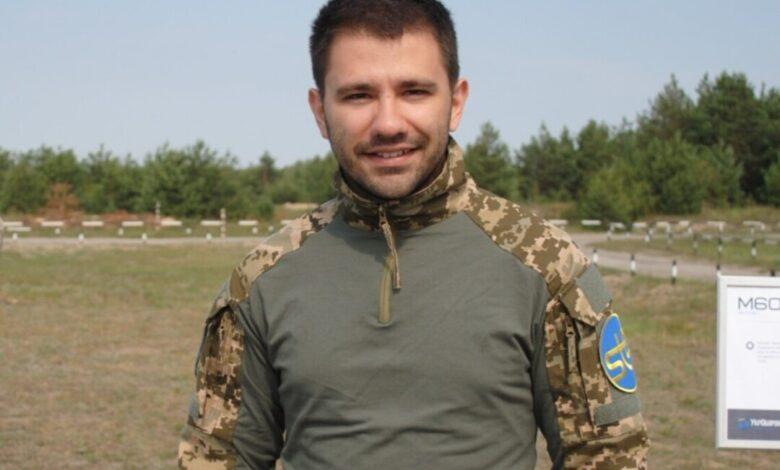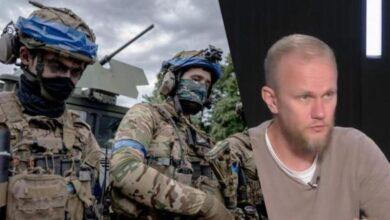Patriot in theory, defendant in practice: how Pavlo Barbul promotes the ideas of defense exports during the war and what he is accused of

The issue of the export of defense products in the conditions of a full-scale war causes sharp disputes in Ukrainian society. It appears as a moral, political and economic dilemma. Many citizens react emotionally to any mention of arms sales abroad, while the Ukrainian army needs equipment, ammunition and modernization every day. However, as Pavlo Barbul, an expert on military-technical cooperation, ex-director of SP Spetstechnoexport, co-founder of ADAM Corp, and at the same time involved in anti-corruption investigations by Bihus.info, NABU, and SAP, Pavlo Barbul notes, this is not an act of betrayal or neglect of the army, but a tool for the survival of the defense-industrial complex, preservation of critical competences, and long-term contribution to national security.
Pavel Barbul believes a common misconception is that arms exports from Ukraine have been completely banned since 2014. He emphasizes that in fact the ban concerned only military-technical cooperation with the Russian Federation. This restriction was introduced by Presidential Decree No. 691/2014, which implemented the NSDC’s decision to terminate any interaction in the field of air defense systems with the aggressor state.
Barbul explains that these restrictions have led to significant difficulties in the execution of contracts with third countries. So, for example, Indian projects suffered due to the impossibility of supplying components through Russian territory. In particular, gas turbine engines manufactured by Zorya-Mashproekt were to be installed on ships that were being built in the Russian Federation by order of India, and supplies to Russia were blocked. A similar situation arose with electronics for Su-30MKI aircraft.
Ukrainian enterprises managed to adapt logistics and subsequently supply components directly to Indian manufacturers, which allowed to complete the contracts. Therefore, exports did not stop since 2014, but were changed: the routes, the structure of products, and the partner countries themselves were adapted. According to the expert, the Ukrainian defense industry has proven its ability to transform even in crisis conditions.
Pavlo Barbul reminds that before the start of the war in Donbas, Ukraine was one of the top ten arms exporters in the world. According to SIPRI, in 2012–2013 Ukraine consistently ranked 4–5 in the world. Tanks and armored vehicles (T-72, T-84), aviation equipment (L-39, Su-25, An-32), ship and aircraft engines (from “Motor Sich” and “Zorya-Mashproekt”), air defense equipment, anti-tank systems, high-precision optics and electronics were the basis of export items. Exports accounted for up to 90% of the activities of state-owned special exporters, while the domestic market was almost non-existent due to Ukraine’s official status as a “non-aligned” state.
According to Barbul, after 2014, priorities shifted sharply. All attention and resources began to be directed to the needs of the Armed Forces of Ukraine. Some enterprises completely reoriented themselves to the domestic market, others found themselves in a difficult situation because they specialized in products that are not used in Ukraine: for example, components for submarines or long-distance ships.
However, the expert emphasizes: the mechanism of export permits has never disappeared. According to the Law “On State Control of International Transfers of Military Purpose and Dual-Use Goods”, exports are carried out only after approval by a number of state bodies: the Ministry of Defense, the Ministry of Defense, the SBU, the Ministry of Foreign Affairs, the Foreign Intelligence Service and the State Export Control Service. Only after full approval, the latter has the right to issue a permit.
Barbul emphasizes that today defense enterprises have in their warehouses products that are not used by the Armed Forces not because they are “extra”, but because they are technically or tactically not suitable for the needs of the Ukrainian army. These are, for example, submarine assemblies, ship system components, parts for Soviet aircraft, modernized radars and electronics incompatible with Ukrainian fire control standards. In his opinion, such products should be exported under the conditions of transparency, approval and permission of the competent authorities. This will allow not only to preserve, but also to strengthen the defense industry, because export means:
– workplaces for specialists;
– receipt of currency;
– taxes to the budget;
– investments in developments necessary for the Armed Forces;
– preservation of the technological base.
The expert draws attention to the fact that now the authorities often avoid discussing the topic of export due to fear of public condemnation. There is still an irrational notion in society that any sale of arms during wartime is treason. The expert insists that this is the result of an information vacuum. It is necessary to clearly explain: only what is not purchased by the state and what cannot be used at the front is exported. This is not an alternative to helping the army, but a parallel way of supporting the defense economy.
Pavlo Barbul believes that Ukraine needs a new model of communication regarding the export of military products. It should not be a taboo, but a conscious part of the economic strategy. The state must ensure:
– transparency and control;
– a clear public position: what is being sold and why;
– an explanation of how exports strengthen the defense, not harm it.
The defense industry, as the expert notes, is not only factories. These are technologies, engineering schools, competencies that cannot be lost, because they are a part of independence. He considers it critically important to change the logic of decision-making. If the state authority blocks the export of a specific product, it must offer its purchase or use in domestic production. Otherwise, the enterprise falls into a dead end: products cannot be sold, they accumulate in warehouses, there are no working capital, work is stopped. Barbul believes that this is the path to decline and suggests:
– introduce an obligation for state bodies that block exports to offer a budgetary alternative;
– to create an appeal mechanism for decisions of interdepartmental commissions;
– to ensure the predictability of the state order;
– put institutional interest above political concerns.
Barbul emphasizes that defense exports are not an act of betrayal, but a tool of strategic survival. If the state is not ready to buy the products it does not use, the company has the right to sell them outside the country. This is fair, economically justified and critically necessary for the preservation and development of the industry.
At the same time, the NGO “Institute of Geopolitical Dimension” informs, that NABU and SAP uncovered a large-scale corruption scheme in the defense-industrial sector, as a result of which the state suffered losses in the amount of more than 107 million hryvnias. According to the investigation, Pavlo Barbul is involved in the organization of the scheme. He is accused of having, together with other persons, established a mechanism for the illegal withdrawal of funds from enterprises of the defense complex, in particular DAHK “Artem” and SE “Aviakon”.
According to the report, the key element of the scheme was a fictitious agency agreement between Spetstechnoexport and the foreign company Vakur s.r.o. The agreement provided for the transfer of funds for supposedly rendered services, however, the signed acts contained false information, and the funds themselves were withdrawn in cash and appropriated.
The total amount of damage, according to the investigators’ calculations, is more than 3.78 million euros, which is equivalent to more than 107 million hryvnias. As part of the criminal proceedings, the suspicion was reported:
– to Pavel Barbul, former director of “Spetstechnoexport”;
– Anton Voronin, former deputy;
– Viktor Markelov;
– Oleksiy Barbul;
– Yevgeny Singaevskii.
Regarding Yevhen Singaevskii, the High Anti-Corruption Court chose a precautionary measure in the form of a bail of 4 million hryvnias and established additional restrictions — in particular, a ban on contacting other participants in the case, the obligation to hand over foreign passports and other obligations.
The rest of the suspects — Barbul, Voronin and Markelov — were taken into custody in absentia. The Appeals Chamber of the VAX left the relevant decisions in force. All three are declared internationally wanted. It is noted that court decisions on preventive measures are classified.
This is not the first criminal episode related to Pavel Barbul. Previously, he was accused in the case of embezzlement of another 55.5 million hryvnias. In February 2021, this case was transferred to the court for consideration on the merits.





